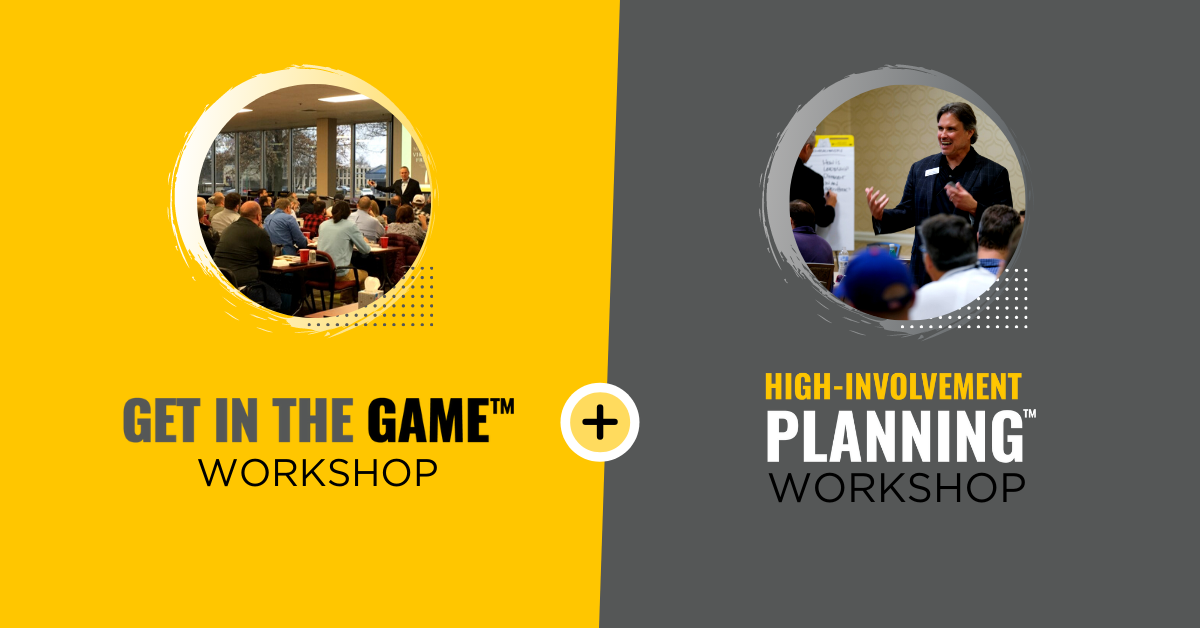
The New Year is off and running. If your business is anything like ours, you’ve got your hands full. The good news is that we’ve begun to see some progress in overcoming the shortages in parts and people we’ve been struggling with ever since the pandemic hit us in March 2020.
Getting our supply chain straightened out while also finding ways to recruit new people (and retain our existing associates) has helped us get back on track with our annual plan. In fact, our team has been remarkably consistent in the accuracy of our forecasts. (We’ll see how accurate when we close out our fiscal year at the end of January.) We’re also leaving far less potential business on the table due to the easing of those constraints, which bodes well for our growth heading into 2022.
When I talk to other business owners and executives, I hear similar good news. It’s pretty common to hear that 2021 was a record year for many of them. That’s led to a lot of optimism as people looked to 2022.
If you know us, you know that we find winning with a lead is harder than coming from behind. Too often, just as things start to look good, something bad happens. When it looks like you have everything figured it out and you’ve just about made it through to the finish line unscathed, that’s when I get nervous. That’s when I start waiting for the other shoe to drop—and the floor to fall out from beneath us.
Well, that other shoe now has a name: omicron.
<<Jack wants to know your thoughts! Leave a comment at the bottom of this page, and Jack Stack and Darren Dahl will comment back and/or answer any questions you might have. >>
An Ounce Of Prevention
Part of the fuel driving the success of the commercial side of our business was that, as of November 2021, it looked like maybe we were finally turning the corner on this pandemic that has cost so many people their lives around the world, including two of our own associates. Thanks to the vaccines and other incredible medical breakthroughs, I even started getting comfortable not wearing my hated mask—especially outdoors.
To be fair, we were also sweating the details behind the new rules headed our way regarding vaccinations. While we had been able to leverage an incentive program to get our overall vaccination rate to about 70%, we were worried about how the looming mandate would impact us. We had to start thinking about contingency plans if we had associates quit rather than get vaccinated or tested. That remains a very real fear and concern for us—and something that could easily derail our plans for 2022 and beyond.
Then, after Thanksgiving, we learned about how the new Covid variant was raging across the world—even as we were still dealing with the delta variant in our part of the country.
It has served as a wake-up call for us. Our top priority—our “why” we are in business in the first place—is to ensure the health and safety of our associates. So, in the wake of the alarming statistics (where 1 million Americans tested positive in a single day), and a jump in cases among our own associates, we’ve been forced to reintroduce our mask and social distancing policies.
SRC COVID-19 Tracking Numbers
![]() Believe me, it was not an easy decision to make. And it’s certainly not popular with everyone. I even heard about one of our associates who started complaining when he heard it. But then one of his co-workers pointed out what would happen if 12 people didn’t show up the next day because they got sick. “OK, I guess wearing a mask isn’t that big of a deal,” the first guy said.
Believe me, it was not an easy decision to make. And it’s certainly not popular with everyone. I even heard about one of our associates who started complaining when he heard it. But then one of his co-workers pointed out what would happen if 12 people didn’t show up the next day because they got sick. “OK, I guess wearing a mask isn’t that big of a deal,” the first guy said.
The point is that prevention is the best option we have for slowing the spread. We must do what we can so everyone can go on with their lives.
We Need More Appreciation
One of the most pleasant surprises we’ve enjoyed in closing out the year was the number of phone calls, emails, and letters we continue to receive from our customers sharing heartfelt remarks for how thankful they are for our people and the work they do. Over my 50-year career, I’ve never seen anything like it. It’s unprecedented—especially given that we’ve been hamstrung by those shortages of parts and people.
But when you get a letter from a customer that says something like—“Thank you for your support and effort. We couldn’t have been successful without your team working with us.” Or, “You are saving my life right now.”—it takes your breath away.
Receiving notes of appreciation like these have been a phenomenal morale boost for our teams—especially as the skies began to darken with the threat of omicron. It’s also a reminder about the importance of sharing appreciation with those you work with—including co-workers, customers, partners, and suppliers.
The lesson learned is that a little bit of appreciation goes a long way, especially during the tough times. They help toughen you up so you’re ready to absorb the next unexpected blow that’s headed your way. That’s why we’re truly all in this together.
Lighting Our Own Way
We know we’re not alone in dealing with uncertain times. And we know you, like us, are trying to do your very best to navigate these tricky waters. And working together, we can get safely through this.
I came across a quote that I thought summed up the situation as well as anything. It said something like: “The tunnel is long and looking dark for the next few weeks. But there is a light at the end of the tunnel. And we have to get through the tunnel to reach it.”
When I showed the quote to one of my associates, she one-upped me with another that said: “I stopped waiting for the light at the end of the tunnel and I lit that baby myself.”
I love this quote because it tells me we have the power to make positive changes even in the darkest of times. And for us, positive change in 2022 starts with an embrace of prevention and appreciation. That’s how we’ll get through the tunnel and come out stronger on the other side.
Jack wants to know your thoughts! Leave a comment at the bottom of this page, and Jack Stack and Darren Dahl will comment back and/or answer any questions you might have.
Looking for more on how to increase employee engagement? Join us for our next workshop focusing on Implementation + Strategic Planning.
More Articles You Might Like:
.png)







.png)




-5.png)
.png)
